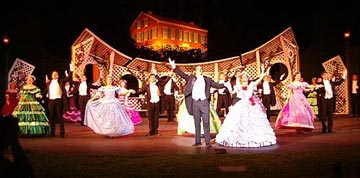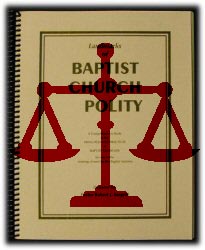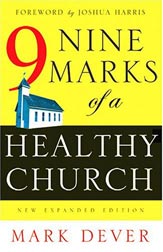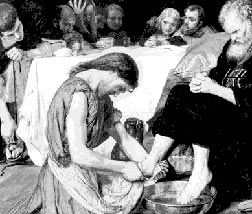August 13, 2006 We went to see the Stephen Foster Story at My Old Kentucky Home State Park. As we approached, a couple of whitetails scrambled across the road in front of us. We had a beautiful, clear evening and a nearly full moon to watch over us. I was impressed with the high quality of the production and the great number of Foster tunes worked into the show.

Check
here for the PBS site that chronicles his tragic life, which ended
at age 37 with 38 cents in his pocket.
On a happier note, I was thinking today about my mother-in-law,
who will be coming to stay with us next week for a while. As she approaches
her 96th birthday, she remains larger than life, though diminutive in
stature. She may not know the language, or exemplify the "look"
of those the Christian community holds in esteem as godly women, but
I will take one of her to ten of the celebrity doyenne ilk. She knows
and lives the principles of scripture- while exemplifying a gladsome
heart, a forgiving spirit (and God knows she has had much to forgive
in others during her years) and love for her enemies.
She has more "adopted'
children than any of us know, people whom she has helped when she didn't
have the means to do so over the years, people who were welcome at her
table when food was scarce, people she defended and fought for and bucked
authority and propriety to put herself on the line for when they could
not help themselves. She is fond of declaring that she has to be accountable
to "the Good Lord" for her responses, and that others must
me on their own account as well. She has taught us what it means to
be a true friend to others and we will do well if we have a fraction
of impact that she has in her life.
We look forward to her visit and cherish the days we will have together.
Pray for us as Earnie starts her seminary class this week as well, and
I try to dig out from under the deluge of work that has piled up during
my vacation time.
August 15, 2006 Head from an auld acquantance..
| ...and he gave me a heads up about this movie his two nephews were involved in. I will be checking it out.. http://www.facingthegiants.com/ |  |

|
The deer mentioned above ran off across a field kicking up their heels, and the photo blurred considerably... so we'll have to settle for a substitute picture... |
Pondering Church
Polity... we are thinking about joining a Southern Baptist church
that embraces a model of congregationally chosen plurality of elders
as its polity of choice.
| There are several criteria I have applied to my understanding of the most biblical model of church polity. First, my objective understanding of what the scriptures teach conforms mostly with the model White outlines in the course text. I diverge from him in my understanding that the congregation’s role in appointing elders is paramount, so I would point to a congregational/plurality of elders hybrid. Garrett objected that in a small church a plurality of elders might not be possible, but I would counter that if one cannot find at least one other person to serve as an elder, you do not have a biblical church; the Holy Spirit will provide. |  |
Secondly, from
subjective observation of nearly 40 years as a Christian, I have witnessed
the dangers of the absolute rule of a single or senior pastor/deacon
board numerous times, which has a powerful innoculatiive effect. My
experience with multiple elder-led congregations has been just the opposite;
the elders provided a balance and check system. This did not deny their
different roles within the body and the Elder in charge of expositing
the word was not "Over" them. Rather than denying the ability
of gifted teachers from outside the elders, the elders, who were all
teachers themselves, provided an accountability structure to guide and
equip other teachers within the local body. It is a beautiful thing
to behold when Godly, humble men who God equipped to guide that body.
Thirdly, in practical terms, the model I favor simply works better in
my estimation. It guards against the spread of false teaching and the
propagation of heresy. Of the eight churches I have been called to serve
in in my life, four followed a variant of the plurality of elders model,
and 4 followed the Single or Senior Pastor with staff and deacons model.
The 4 with elders at their head were spiritually more mature, more effective
in evangelism and had a stronger, more focused vision. Nature abhors
a vacuum. The deacons in churches without a plurality of elders have
effectively been charged with church discipline and ruling responsibilities
in case after case, which goes beyond their biblical role.
Finally and theologically, the plurality of elders model seems to follow
the pattern of relationship set up in the Trinity itself, a plurality
of equality with roles and accountability based on loving relationship.
I realize that this analogy breaks if you push it far enough. If space
allowed, I would propose that this model also effectively glorifies
God. The priesthood of all believers would seem to warrant that the
elders have an accountability built into their service role not only
to each other and to Christ, but to the congregation, which bears witness
to their qualifications and must also have the ability to act to remove
them from their position if warranted.
Thoughts on
Dever's Nine Marks of a Healthy Church -Pondering a Peculiar
People
Call me a cautious skeptic when it comes to prescriptive lists. In Dever's
Nine Marks of a Healthy Church, success and health seem to
be equated. I think for the most part , his treatment is thoroughly
biblical and critical appropriation of his concepts are in order.
| What I am examining in my meditations requires
stepping back and pondering how Dever's prescriptive "to do"
list mentality may aid and abet the problem of appropriating and
imposing models on unique and dynamic local bodies. "God's work, God's way" is a loaded aphorism. Paul advocates in 1 Cor 14:26 the "strengthening" of the church. However, we have to be sure to examine our notions of health with a critical eye. We need to see where our definitions are informed by the image-conscious, self-serving, rationalist air we breathe. We must take care to remember the concept that power is perfected in weakness, and that in God's economy the last will be first. I think of Paul's description of the apostles in 1 Cor 4: 7-13. We need as leaders to be seeking God's best in the context he calls us to, and to do that, leaders may need to articulate a well thought-out theology of failure before we can appropriately define success. "The figure of the Crucified invalidates all thought which takes success for its standard" wrote Bonhoeffer. |
 |
The Two Edged
Sword of Expositional Preaching
A very salient feature I would point to in Dever’s book in a positive
light is his focus on expositional preaching. On a personal note, without
a doubt, the most exponential growth I have experienced in my life and
in the life of the church was realized under expositional pulpit ministries.
My two most influential pastors, Duane Litfin and Gary Inrig, were mentored
by Haddon Robinson. It has been my observation that this is a defining
factor on the effectiveness and power resident within churches and through
this type of preaching the warm breath of God is freshly breathed on
communities, lives are transformed, and oaks of righteousness are grown..
As for Dever’s treatment, though convincing, he is a bit nondescript
for my tastes. In my case, I am a true believer in his contentions,
but wonder about the semantics. I would seek to define this type of
preaching he describes as expository preaching, wherein entire books
are preached in context. I know many preachers who aspire to be expositors
who pale in the light of the real thing. Dever lays the foundation for
his other marks by putting forth the primacy of scripture, inextricably
linking the lack thereof to the downfall of many churches in discerning
real biblical conversion. I can attest to this as well.
This primacy of the Word in God’s pulpits is the starting place
for viable leadership in the local church. Without the clear teaching
of sound doctrine via the exposed Word, the goats will overrun the flock,
the sheep will stray, and the soil of souls will not be tilled and planted
with new life.
I would observe that in our recent moves and our quest to find a church
that practice what Dever preaches, I have been shocked at the departure
from the Word evidenced in MOST of the Southern Baptist churches I have
gone to. Topical preaching with rare reference to the scriptures abounds.
Is this a failure of the seminaries to develop leaders who can handle
the Word, or is the departure based on meeting felt needs and heeding
the bad advice of church growth gurus and the emergent paradigm that
seeks "relevance"?
How can a Christian
justify devoting a large amount of energy to the study of leadership
given what appears to be the pervasive call to servanthood, not leadership,
in the Bible?
The answer is tied to the seeming paradox that Jesus taught : The last
shall be first. He exemplified this as the suffereing servant whoendured
the joy of the cross and was exalte (Phil 2-3).
 |
We are called to be approved workmen. In God’s economy, leadership tends to be thrust upon the least. In the case of Moses, the meekest man in the world became the great leader who stared down the Pharaoh with the Word of Yahweh. The shepherd boy David was exalted to the great King. The baby born in a cattle manger in the least of towns was raised in a town where nothing good ever came from to become the despised and rejected suffering servant who was exalted to be King of Kings and Lord of Lords, the Captain of our souls. The biblical model for leadership turns the worlds notions on its head. Thus the servant who is called by God is the very one who will exercise authority and leadership positions and the study of this dangerous calling becomes a required course of study. |
The development of servant leadership is not an oxymoron. The literature must be filtered through a thoroughly biblical grid to separate the useable and beneficial from the dross. Creative processes form the basis for true leadership and men created in God’s image can have something worth hearing on the matter based on their experience stemming from sovereign call as leaders. The biblical model of servant leadership is modeled by Christ. It is more about attitude towards God and man than positioning in a hierarchy.
| Leadership is not that which the Christian starts out seeking. If he does, God will (surely?) break and bruise that man mightily until he becomes malleable in the hand of the most high.Wait a minute- do I really believe this is always true? Probably not. On the contrary, God’s modus operandi is to take the weak one who seeks God’s face and graces that person with the obedience of faith and infuses an alien righteousness which in turn transforms the vessel by the renewal of the mind into an instrument of actual righteousness. The process begins by breaking the heart until it is humble and contrite and cognizant of the spiritual realities one faces and is formed in. |  |
The ongoing process
involves gracious gifting, imposed responsibilities and servanthood.
As bondslaves we are not our own, and we bear the weight of glory. Courage,
compassion, boldness and wisdom are gifts of God which must be used
for the edification of the body of Christ. The yoke is easy and the
burden is light if and only if it is wielded by the power of the might
that is perfected in weakness. Therefore leadership comes supernaturally
and unbidden upon the servant of the Lord. The word "hineni"
will not be heard from one who ambitiously aspires to leadership, but
the one who seeks with zeal to serve Yahweh, the God who has no need
of our services. This is where duty becomes delight and we become dangerous.
Such a leader considers others to be better than oneself, and seeks
the good of God first and his people alongside of that pursuit. This
is the kind of cross bearing required of God’s leaders, but his
eye goes to and fro throughout the earth seeking to fervently support
the man who diligently seeks Him.
Comments on
Chad Brand's Perspectives on Church Government...
Hydra analogy
| In regard to church polity, Adrian Rogers has said- "a thing with one head is normal, a thing with more than one head is a freak" With all due respect to Dr. Rogers, the freak illustration is colorful, but is a bit of a reach. The church only has one head, Christ Jesus (Col 1:18). There is one body- Eph 4:5. |  |
Flexibility aside,
one would think we could find a sterling example of a single elder led
congregation in the pages of scripture if that is what God intended
as the summum bonum.
Yet White shows that elders is plural. With Timothy, his ability to
join Paul would seem to be contingent upon muliple elders in Ephesus
as well...
The notion of a hierarchy of laymen and professional ministers is curious
to me. If a layman is ordained and licensed to make decisions, does
that not imply that he has a calling recognized by the local congregation?
If not, what then constitutes a Biblical call to leadership?
I ask as this has a direct bearing on how we define leadership.(I also
don't see a strong case for what we commonly call "ordination"
in the scriptures, but that is another issue, and I am open to learning.)By
the way, I thought Dr. Akin was less than enthusiastic in his support
for his editorially assigned stance?
Worth mentioning:
Historically, the Baptist Faith and Message had it as "elders or
bishops and deacons" as in the 1925 version until the 1963 revision.
Herschel Hobbs chaired that revision and in 1964 clarified that elders,
bishops, or pastors describe the same office.
Another thought
I'm compelled to mention that in heaven there will be twenty four elders
who seem to take the lead in worshipping God forever. Thy Kingdom come,
Thy will be done on earth as it is in heaven. :-)
Deducing Dever- Why does Dever call for a majority of laymen
on his elder board and why doies Mohler differ on this form of polity?
I am not so sure that much speculation is needed, but rather a bit of
deduction. Dever is patently clear on several points. Dever points to
the biblical qualifications of eldership, and a seminary degree is not
among them. Do elders rule? Dever says: No, they direct or lead. There
is no distinction between ruling and teaching elders. He points out
that deacons fulfill the role of plural, non-staff leadership in most
congregations in unbiblical praxis. Dever also points to the evidence
that plural-eldership led congregations is a better reflection of Baptist
tradition before the second half of the twentieth century. The bottom
line is that Dever sees his position as the most biblical, therefore
the most Baptist and as such, not optional.
Now for speculation: Other issues: Laity is defined as those who are
not of a given profession or specialized field. Vocation is from vocare;
that means it has to do with calling. I would suggest it is problematic
to think in terms of a "professional clergy" mindset. I like
what Piper wrote in this regard: "There is no professional childlikeness…
no professional tenderheartedness…no professional panting after
God"
So what is a layman? Can I assume I can refer to laity in the sense
it is defined in the dictionary: as one who does not hold one of the
offices of the church? Therefore "lay eldership" would seem
to be an oxymoron once a layman is called by the local church to fulfill
such an office. I belive we should refute a clergy-over-laity hierarchichal
mindset that came out of catholicism, and Cyprian in particular, where
there was a need for a professional to murmur hoc est corpus meum over
the bread and the wine.
As for Mohler's take, more data and speculation is required. I suspect
he is rightly (and at least partially) reacting to the grossly unbiblical
practice of placing people in roles of leadership based primarily on
what they are successful in in the world rather than doing the hard
work of discerning their spiritual giftedness and biblical qualifications.
This results in a CEO/board model that characterizes so many SBC churches.
This practice in regard to lay eldership is in effect the same one that
is also used in non-elder led congregations to elevate deacons to roles
not prescribed in the scriptures, in my humble opinion.
Re.: Buddy Gray's use of deacons as "conflict managers",
or...What do deacons do?
Speculation is required on this one. The scriptures characterize the
primary role of deacons as servants and meeters of practical needs throughout
the book of Acts. I want to be charitable, but given the information
I have, that is difficult to do.
If, at Hunter Street Baptist, Buddy Gray is saying that we all are given
the command to protect the unity of the church, I agree. But I do not
find where the office of deacon was instituted in that regard per se.
See Ephesians 4; Colossians 3 links unity to being renewed in the image
of the Creator. I would point out that unity is the reason why Christ
said he gives us the glory the Father gave him (John 17).
Without knowing what the specific duties assigned the deacons at Hunter
street Baptist, and depending on how these are assigned, I would only
say that this smacks of an unbiblical elevation of the role of the deacons
to fill the vacuum of not having enough elders such as I spoke of in
my previous post.
As an autonomous local church I would defend their right to apply such
a model, just as I would defend Jonathan Edward's church's right to
fire him. They had the right but I think they were wrong. On the other
hand there is a sense in which we all have authority to protect the
unity of the church, though no office is mandated.
Quickie Review-
The Devil Wears Prada
Set in a scenario of haute couture, this is a movie about conflict and
power. And self aggrandizement, of course. Meryl Streep plays a wickedly
stoic maven of fashion, a Helen Gurley Brown type who speaks in an idiom
of conquest and evokes awe and terror in those minions who do her bidding.
This part of the movie rings a bit too true from what I have seen of
corporate life, with the idea that this little world is what the universe
revolves around. Most of the 8 billion people in the world do not know
the difference in a mule and a pump, I would suggest.
| But as the boss from hell says, "everyone wants to be us". And she has our protagonist (Andy Sachs, played by Anne Hathaway) believing it until the survivalist talons come out and the deserving, loyal , faithful design assistant who has befriended pays the cost. Our conflicted "Emily" as every one in her position is renamed (there is power and ownership in naming something) walks away from it all in the end, so it seems, but she is trading one set of conflicts and moral equivocation for another- she goes back to living with her boyfriend and writing social justice pieces which is portrayed as the ideal good - wholesome by comparison. After sleeping with another fashion power broker. So the ending is ambivalent at best. One is left feeling that Andy will get what she wants in whatever life she chooses. |  |